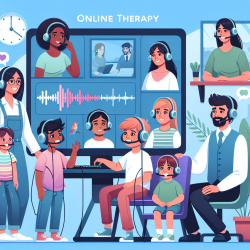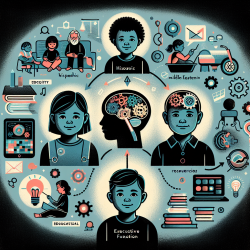In the rapidly evolving field of speech-language pathology, staying ahead of the curve is crucial for delivering the best outcomes for children. A recent study titled "Using team-based precision medicine to advance understanding of rare genetic brain disorders" offers a groundbreaking approach that can transform your practice. Let's dive into how you can leverage these insights to enhance your skills and improve patient outcomes.
The Power of Team-Based Precision Medicine
Traditional methods of diagnosing and treating rare genetic brain disorders often leave parents and practitioners in a state of uncertainty. This study, conducted by Walkley et al. (2024), introduces a multidisciplinary approach known as "Operation IDD Gene Team," which brings together families, physicians, and scientists to collaboratively tackle these complex conditions.
How It Works
The IDD Gene Team meetings are structured to foster open communication and knowledge sharing among all participants. Here's a breakdown of the process:
- Initial Contact: When a rare genetic disorder is identified, the family is invited to participate in an IDD Gene Team meeting.
- Team Formation: A team of experts, including medical geneticists, scientists, and clinicians, is assembled based on the specific genetic disorder.
- Collaborative Meetings: These meetings involve in-depth discussions where families share their experiences, and experts provide insights into the genetic and clinical aspects of the disorder.
- Actionable Outcomes: The collaborative nature of these meetings often leads to new research directions, funding opportunities, and the development of patient advocacy groups.
Benefits for Practitioners
Implementing a team-based approach in your practice can offer numerous benefits:
- Enhanced Understanding: Gain a deeper understanding of the genetic and biological underpinnings of rare disorders.
- Improved Patient Care: Provide more informed and comprehensive care plans for your patients.
- Professional Growth: Collaborate with leading experts and contribute to cutting-edge research.
Encouraging Further Research
While the IDD Gene Team model has shown promising results, there is still much to learn. As practitioners, we should advocate for and participate in further research to continue advancing our understanding of these rare genetic disorders. By doing so, we can contribute to a future where every child receives the best possible care.
To read the original research paper, please follow this link: Using team-based precision medicine to advance understanding of rare genetic brain disorders.










